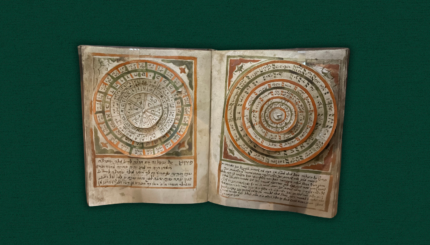Like spiritual leaders in many religions, Jewish clergy normally deliver sermons during worship services. The most common practice is for rabbis to deliver an address during a synagogue’s main Shabbat service, usually on Saturday mornings. Sermon topics can vary widely, but often touch in some way on the weekly Torah portion.
Though often more subdued than the elaborate performance art of some religious traditions, rabbinic preaching is considered by some worshippers to be the centerpiece of the service. Anthologies of rabbinic sermons were routinely gathered into published volumes in the United States in the mid-20th century, though the practice has since fallen off; sermons, if they are published now at all, are more often found on synagogue websites. The ability to deliver an inspiring sermon is generally considered to be a core function of the pulpit rabbi, and many seminaries require students to take courses in preaching.
Rabbinic sermonizing has a long history in Judaism. The Talmud is replete with references to rabbinic lectures and hints that the tradition of the Sabbath sermon was known in ancient times. One passage in Brachot records the practice of rabbis running on the Sabbath to hear a lecture. Running is normally frowned upon on the Sabbath, but the Talmud seems to approve of the practice when its objective is hearing words of Torah. The biblical commentator Rashi, in a comment on God’s statement in Exodus that Aaron should be a prophet to Moses, writes that the role of prophet is to rebuke the people, a role known in old French as a predicar — similar to the contemporary French word for preacher: prédicateur.
The Talmud established a distinction among rabbinic orators that would hold true for centuries — between speakers who focused largely on the law and those who were more akin to storytellers. The Talmud in Sotah tells a story of two rabbis: Rabbi Abbahu, who taught matters of aggadah (the non-legalistic talmudic texts that include folklore and parables), and Rabbi Hiyya bar Abba, who taught matters of Jewish law. Rabbi Abbahu was the more popular of the two, which offended Rabbi Hiyya and prompted Rabbi Abbahu to seek to appease him.
With your help, My Jewish Learning can provide endless opportunities for learning, connection and discovery.
These two types of preachers would come to be known as a darshan and a maggid. Darshan, from the Hebrew word for “demand” or “search,” referred to a scholarly teacher who focused on textual exegesis. The word is used in many biblical and rabbinic texts to refer to individuals who publicly taught Torah. The word Midrash itself is derived from the same root as darshan. In modern times, a synagogue sermon is sometimes called a “drash,” though the word is no longer limited to orations of the more scholarly type.
The other type, the maggid, takes its name from the Hebrew word for “to tell” or “to relate.” The maggid tradition reached its peak in Europe, where rabbis largely left sermonizing to these skilled raconteurs who were not necessarily rabbis themselves. Maggidim were often itinerant preachers who traveled from to town to town telling stories that contained pearls of religious wisdom, though larger communities sometimes had a resident maggid. Among the best known is Dov Ber of Mezeritch, also known as the Maggid of Mezritch, an 18th-century preacher who was a disciple of Rabbi Yisrael Baal Shem Tov, the founder of Hasidism.
Today, preaching is a taught discipline in rabbinical seminaries, where it is known as homiletics. Training typically involves some combination of theory and practice, analyzing sermons considered to be models of the form alongside student attempts to craft and deliver sermons of their own. Both Hebrew Union College-Jewish Institute of Religion, the Reform movement seminary, and the Jewish Theological Seminary, the flagship Conservative seminary, have well-established traditions requiring students to deliver a so-called “senior sermon” prior to graduation.
Midrash
Pronounced: MIDD-rash, Origin: Hebrew, the process of interpretation by which the rabbis filled in “gaps” found in the Torah.
Torah
Pronunced: TORE-uh, Origin: Hebrew, the Five Books of Moses.
Talmud
Pronounced: TALL-mud, Origin: Hebrew, the set of teachings and commentaries on the Torah that form the basis for Jewish law. Comprised of the Mishnah and the Gemara, it contains the opinions of thousands of rabbis from different periods in Jewish history.



